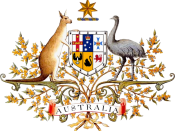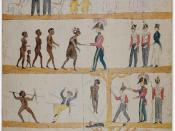Historiography, or the methodology used for historical study and writing, helps demonstrate that the present is not divorced from the past; rather that history is a continuous dialogue with it. There are many contentious issues in writing history, depending on the agenda behind the accounts. This is shown clearly through attitudes to the Australian convicts. This essay will examine the historiography of writing Australian history, through authors such as MacIntyre, Pascoe, Windschuttle and Clark, then will focus on some of the debates concerning the convicts to demonstrate the arguments historians like Smith, Shlomowitz, Damousi and Hancock face.
One of the most problematic areas in the writing of Australian history is that, on the whole, it has been uneventful in the traditional sense, meaning that there were no large-scale revolutions, civil wars or struggles for independence. Therefore, a successful historian must, through necessity, be able to dramatise what would otherwise be no longer than a few paragraphs.
"Historians of this dramatic bent have enlivened every period of the Australian past with struggles between contesting social classes: in the convict era, it was emancipists versus exclusives; in the gold rushes, diggers versus troopers; in the pastoral economy, squatters versus selectors; in the industrial economy, labour versus capital." Empirical historiography, on the other hand, relies upon careful comparison of documented resources; leading to objective, impartial and detailed facts, which fail to draw conclusions, rather, merely define past events. For this essay, empirical research will be sidelined, as Australian history appears to lend itself to a less methodical telling. The sources of documentation used to provide the conclusions inherent in the more sentimental approach are newspapers, journals, memoirs, pamphlets and other forms of propaganda, including verbal accounts. The telling of this form of history ties firmly into the concepts of the present, and...


